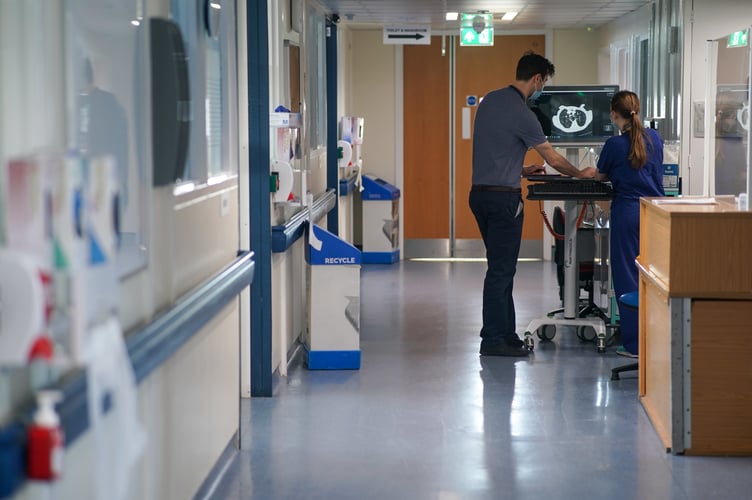Tens of thousands of patients were waiting for routine treatment at Plymouth Hospitals Trust in November, figures show.
A health think tank warned January strikes would further add to the pressure faced by the NHS during the winter period.
NHS England figures show 47,498 patients were waiting for non-urgent elective operations or treatment at University Hospitals Plymouth NHS Trust at the end of November – down from 49,345 in October, and 51,503 in November 2022.
Of those, 2,310 (5%) had been waiting for longer than a year.
The median waiting time from referral at an NHS Trust to treatment at Plymouth Hospitals Trust was 15 weeks at the end of November – the same as in October.
Nationally, 7.6 million people were waiting to start treatment at the end of November – down from 7.7 million in October and the second consecutive fall.
Sarah Scobie, acting director of research at the Nuffield Trust, said: “The fact that NHS staff have been able to increase the number of patients they have been able to treat, coupled with a slowdown in people joining the waiting list, has helped move things in the right direction.
“It is also a positive sign to see a reduction in the number of patients who have been left waiting for 65 weeks or more. However, given where we are now, and the challenges of winter, it remains unlikely the NHS will meet the target it set itself to eliminate waits of this length by March this year.”
However, she warned the latest junior doctors’ strike taking place this month “will only add to winter pressure”.
Separate figures show 1.6 million patients in England were waiting for a key diagnostic test in November – the same as in October.
At Plymouth Hospitals Trust, 12,002 patients were waiting for one of 14 standard tests, such as an MRI scan, non-obstetric ultrasound or gastroscopy at this time.
Of them, 2,825 (24%) had been waiting for at least six weeks.
Other figures show cancer patients at Plymouth Hospitals Trust are not being seen quickly enough.
The NHS states 85% of cancer patients with an urgent referral should start treatment within 62 days.
But NHS England data shows just 59% of cancer patients urgently referred to Plymouth Hospitals Trust in November began treatment within two months of their referral.
That was down from both 64% in October, and 71% in November 2022.
Professor Pat Price, co-founder of the #CatchUpWithCancer campaign, said: “Sadly, these figures are an ominous opening to what looks to be another deeply worrying year for both cancer patients and the frontline staff who are battling against the odds to care for them.”
He added: “These new figures reinforce a picture of years of abject failure and cancer treatment delays.”
The Prime Minister’s official spokesman said the decrease in November, a month with no strikes, was “an illustration of the progress NHS staff can make when they don’t have to contend with industrial action”.
“Undoubtedly the strikes are having a significant impact on patient care, it forces those staff – the majority of staff who are not striking – to have to cover for junior doctors and that has a knock-on effect on patients,” they added.
“We have seen that with the number of cancelled operations. It’s unacceptable, it’s not fair to patients, it’s not fair to other NHS workers – the majority of whom are paid less than the average junior doctor.”



